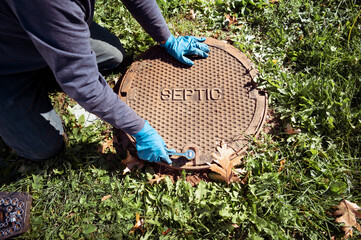The septic business plays a vital role in maintaining clean water, protecting the environment, and ensuring safe sanitation for homes and businesses. With increasing awareness about proper wastewater management, investing in a septic service business has become a lucrative and essential venture. From installation and maintenance to repairs and inspections, a well-run septic business provides critical services that homeowners, property managers, and commercial facilities rely on daily. Understanding the industry, services offered, and strategies for growth is key to building a successful septic business.

Understanding the Septic Business
A septic business focuses on the installation, maintenance, and repair of septic systems, which treat and dispose of wastewater for properties not connected to municipal sewer systems. Septic systems are common in rural areas, new developments, and places where municipal services are unavailable. Proper management ensures safe sanitation, prevents environmental contamination, and extends the life of the system.
Services provided by a septic business typically include:
- Septic Tank Installation – Designing and installing new systems tailored to property size, soil type, and usage.
- Pumping and Cleaning – Regular removal of sludge and solids to maintain system efficiency.
- Repairs and Maintenance – Fixing leaks, clogs, and system malfunctions to prevent costly damage.
- Inspections – Assessing the condition of septic systems for real estate transactions or routine maintenance.
- Drain Field Services – Maintaining and repairing the leach field to ensure proper wastewater absorption.
Offering comprehensive services ensures customer satisfaction and fosters long-term business relationships.
Importance of Septic System Maintenance
Regular maintenance is crucial to prevent costly repairs and protect the environment. Neglecting septic systems can lead to system failure, groundwater contamination, and health hazards. Benefits of routine septic maintenance include:
- Extended System Lifespan – Proper care reduces wear and tear, ensuring the system lasts longer.
- Cost Savings – Preventive maintenance is more affordable than emergency repairs or system replacement.
- Environmental Protection – Well-maintained systems prevent sewage leaks and protect surrounding soil and water.
- Compliance with Regulations – Regular inspections ensure adherence to local health and safety codes.
- Peace of Mind – Property owners can rely on their septic systems without worrying about unexpected failures.
Educating customers on the value of maintenance services strengthens trust and generates recurring revenue for the business.
Key Considerations for Starting a Septic Business
Starting a septic business requires careful planning, licensing, and adherence to local regulations. Key considerations include:
- Licensing and Certification – Ensure compliance with state and local regulations for septic system installation and maintenance.
- Equipment and Tools – Invest in reliable pumping trucks, inspection cameras, and repair tools for efficiency and safety.
- Skilled Workforce – Hire trained technicians with expertise in septic systems, plumbing, and wastewater management.
- Insurance and Liability Coverage – Protect your business and clients with proper insurance policies.
- Marketing and Customer Service – Build a strong reputation through professional service, referrals, and online presence.
Proper preparation lays the foundation for long-term success in the septic industry.
Marketing Strategies for Growth
Effective marketing is essential for attracting clients and growing a septic business. Strategies that can drive business include:
- Local SEO and Online Presence – Optimize your website and online listings to appear in local search results for septic services.
- Referral Programs – Encourage satisfied customers to refer friends and neighbors in exchange for discounts or incentives.
- Partnerships with Contractors – Collaborate with builders, real estate agents, and property managers for consistent referrals.
- Social Media Engagement – Use social media platforms to share tips, success stories, and maintenance reminders.
- Community Involvement – Participate in local events or workshops to educate residents about septic system care.
A well-rounded marketing strategy ensures consistent lead generation and builds credibility within the community.
Safety and Environmental Responsibility
Operating a septic business involves handling wastewater, chemicals, and heavy machinery, making safety and environmental responsibility critical. Best practices include:
- Following OSHA Guidelines – Ensure all employees follow safety protocols for equipment operation and hazardous material handling.
- Proper Waste Disposal – Dispose of sludge and wastewater according to local regulations to protect the environment.
- Training and Certification – Regularly update staff training on safety, equipment use, and environmental compliance.
- Emergency Preparedness – Have protocols in place for spills, leaks, or equipment failure to prevent damage and liability.
Demonstrating a commitment to safety and the environment strengthens your reputation and ensures compliance with industry standards.
Opportunities for Expansion
The septic business offers multiple avenues for growth beyond traditional services:
- Water Treatment Solutions – Providing additional services such as water filtration or softening systems.
- Commercial Contracts – Securing agreements with apartment complexes, schools, and businesses for regular maintenance.
- Emergency Services – Offering 24/7 septic repair and pumping services for urgent situations.
- Maintenance Plans – Creating subscription-based services for regular inspections and cleaning.
- Educational Workshops – Hosting community workshops on proper septic care to raise awareness and attract clients.
Diversifying services increases revenue streams and positions your business as a trusted authority in the field.
The septic business is an essential service that combines environmental responsibility, technical expertise, and strong customer relationships. By offering comprehensive services, prioritizing safety, and implementing effective marketing strategies, a septic business can achieve long-term growth and profitability.
Proper maintenance, timely repairs, and professional installation not only protect property owners but also contribute to public health and environmental sustainability. With careful planning, skilled staff, and a commitment to quality, entrepreneurs can build a successful septic business that serves communities, ensures clean water, and provides a reliable income for years to come.
Investing in a septic business is more than just a financial opportunity—it is a chance to provide an essential service that improves lives, safeguards the environment, and fosters trust and loyalty among clients.